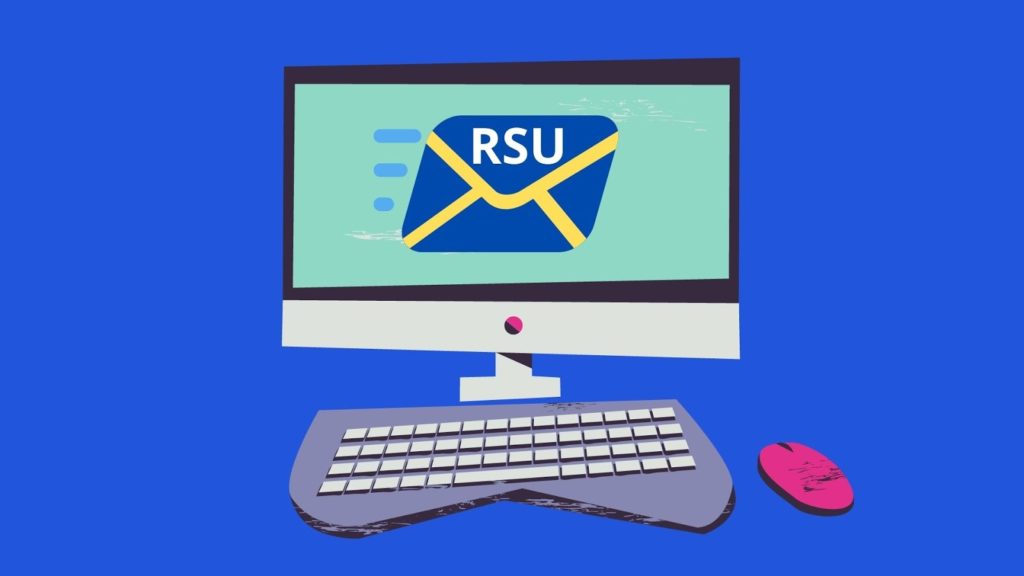
Several candidates vying for executive positions on the RSU failed to show up for a key election debate Tuesday, one of the few chances students have in a very short campaign to hear from those who want to represent them.
The candidates who didn’t show criticized the event both for the time of day it was held and the way it was conducted.
Ahmed Ali, the presidential candidate for the slate Revolution, was the only member of Revolution’s executive team present at the debate. According to an email to On The Record from Ali, the other four members of his team had classes so “the 3 p.m. time was very inaccessible for them.”
Marina Gerges, a presidential candidate who is running as an independent, was also not present at the debate. According to an email to On The Record from Gerges, she chose not to attend the debate because of the student body’s lack of awareness of the election, and the lack of transparency around the election process.
“The whole point of the debate is so that students can hear what each candidate stands for and what their plans are, not for (the candidates) to listen to each other,” wrote Gerges. “The debate used to be run by an independent party, The Eyeopener, but last year the RSU decided the chief returning officer (CRO) should be in charge of it. I don’t agree with this and believe it should be held by someone as far removed from the election process as possible.”
All five executive candidates for the slate Forward were present and spoke during the debate. Vice-president student life independent candidate Ozioma Molokwu was also present for the debate and spoke about her platform.
The candidates present at the debate answered questions about their priorities if they were elected and their thoughts on the return to in-person education.
During the debate, attendees asked in the chat if candidates had been given access to the questions prior to the debate, but no response was given. At the end of the debate, one attendee unmuted their microphone and asked the CRO, Jenna Rose, if she could clarify whether certain candidates were given the questions prior to the debate. Rose did not reply and seconds later the Zoom call ended.
According to the RSU website, there are 55 candidates running in the election this year. Twelve students are running for executive positions and 43 students running as faculty and student representatives on the RSU Board of Directors (BoD).
There are two main slates, or groups of candidates with a common platform, running in this year’s elections: “Revolution” and “Forward.” There are also 12 candidates who are running as independents and are not affiliated with a slate.
During the debate, current vice-president of education and Forward vice-president education candidate Tarman Kaur was asked if she would continue the RSU textbook grant currently in place, to which she said she “will continue to offer the textbook grant.” However, there is no textbook grant or bursary offered by the RSU.
On the RSU website, there are six bursaries, grants and scholarships listed: the Athletics Grant, Emergency Bursary, Mental Health and Leadership Award, Graduate Travel Grant, RSU Sponsorship Grant, and Career Development Grant.

On the RSU Instagram page highlights titled “GRANTS”, “EDUCATION” and “REIMBURSEMENTS” there is also no mention of a textbook grant. Since May 1, 2021, when Kaur started her position as vice-president education, there have been no posts on the RSU Instagram account regarding a textbook grant.
When the vice-president student life candidates present were asked if they would pledge to appoint representatives to the position of student groups director and course unions director, both independent candidate Molokwu and Forward candidate Nikita Khan said they “absolutely” would.
However, according to RSU Bylaw 6.17, the position of student group director and course unions director are not appointed by the vice-president student life – they are elected by the executives of RSU affiliated student groups and course unions at the first all executive meeting in April of each year.
When asked about her plans to support student groups if elected, Khan said that she would like to “introduce a convention where we will gather campus group leaders from all over the university and provide them with financial and governance training to assist them in better serving their membership.”
This training workshop already exists and is mandatory, according to the RSU Student Groups Policy, so it cannot be introduced. According to the RSU Student Groups Policy 2.13, the summer workshop is mandatory for all student groups, and non-attendance to the summer workshop will automatically result in a probation status for the student group. According to the 2020 Student Groups and Course Unions Training Workshop agenda acquired by On The Record, the topics of administration and finance are covered during this mandatory training session.
Candidates running for all five the RSU executive positions that were present at the debate were invited to speak about why they should be elected. Historically, only the candidates running for president, vice-president operations, and vice-president equity spoke in the debate. Each candidate present was also invited to answer three questions that were gathered by the CRO and deputy returning officer (DRO) prior to the debate.
Voting for the RSU 2022-23 elections begins today and runs until Friday. Students can vote online via students’ my.ryerson portal.
Emma Moore was a Social Media Producer and General Assignments Reporter for On the Record News in the Winter 2022 semester.

